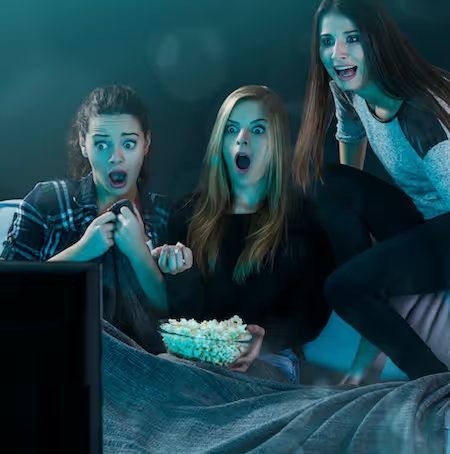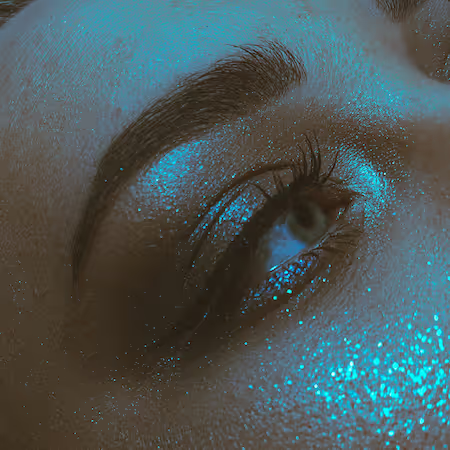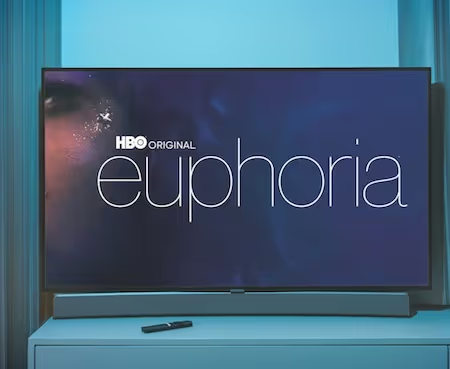


I just returned from Australia where I was rolling out Screenagers. The film has screened in more than 30 countries so far and we have a new partnership in Australia that is really exciting. Doing screenings and press throughout put me in contact with parents, teachers, and reporters. All over the country, I heard exactly the same questions and concerns I’ve heard in the U.S. and in other countries: Why are we so glued to our devices and what is excessive screen time? A new book called Irresistible by Adam Alter looks at why everyone seems to be is so entranced by screens. He makes points such as how Netflix shows are designed specifically for binge watching.
In an interview with Alter by Ben Machell in The Weekend Australian Magazine, Alter says “The interesting thing with technology 20, 15, even 10 years ago was that there were built-in barriers to enjoyment.” He goes on to say that to see a cartoon you had to wait for the “boring” news to be over. In the past there were forced breaks that usually existed for enjoyable things, called “stopping rules,” but now the Internet has eliminated those.
In the same article, I learned about what happened when the electronics company Philips launched a toothbrush that was a video game and kids got points as they brushed their teeth. The kids, it turned out, would not stop brushing their teeth. Frustrated parents contacted the company and soon Philips changed the product so the game would automatically time out. The game’s main character, Sparkly, would drop from exhaustion. I love this story for two reasons: the reminder that even tech with the best intentions needs to be put in check and that parents' voices can be heard by companies.
Learn more about showing our movies in your school or community!
Join Screenagers filmmaker Delaney Ruston MD for our latest Podcast

Learn more about our Screen-Free Sleep campaign at the website!
Our movie made for parents and educators of younger kids
Learn more about showing our movies in your school or community!
Learn more about showing our movies in your school or community!
Join Screenagers filmmaker Delaney Ruston MD for our latest Podcast

Learn more about our Screen-Free Sleep campaign at the website!
Our movie made for parents and educators of younger kids
Join Screenagers filmmaker Delaney Ruston MD for our latest Podcast
As we’re about to celebrate 10 years of Screenagers, we want to hear what’s been most helpful and what you’d like to see next.
Please click here to share your thoughts with us in our community survey. It only takes 5–10 minutes, and everyone who completes it will be entered to win one of five $50 Amazon vouchers.
I just returned from Australia where I was rolling out Screenagers. The film has screened in more than 30 countries so far and we have a new partnership in Australia that is really exciting. Doing screenings and press throughout put me in contact with parents, teachers, and reporters. All over the country, I heard exactly the same questions and concerns I’ve heard in the U.S. and in other countries: Why are we so glued to our devices and what is excessive screen time? A new book called Irresistible by Adam Alter looks at why everyone seems to be is so entranced by screens. He makes points such as how Netflix shows are designed specifically for binge watching.
In an interview with Alter by Ben Machell in The Weekend Australian Magazine, Alter says “The interesting thing with technology 20, 15, even 10 years ago was that there were built-in barriers to enjoyment.” He goes on to say that to see a cartoon you had to wait for the “boring” news to be over. In the past there were forced breaks that usually existed for enjoyable things, called “stopping rules,” but now the Internet has eliminated those.
In the same article, I learned about what happened when the electronics company Philips launched a toothbrush that was a video game and kids got points as they brushed their teeth. The kids, it turned out, would not stop brushing their teeth. Frustrated parents contacted the company and soon Philips changed the product so the game would automatically time out. The game’s main character, Sparkly, would drop from exhaustion. I love this story for two reasons: the reminder that even tech with the best intentions needs to be put in check and that parents' voices can be heard by companies.
Sign up here to receive the weekly Tech Talk Tuesdays newsletter from Screenagers filmmaker Delaney Ruston MD.
We respect your privacy.
I just returned from Australia where I was rolling out Screenagers. The film has screened in more than 30 countries so far and we have a new partnership in Australia that is really exciting. Doing screenings and press throughout put me in contact with parents, teachers, and reporters. All over the country, I heard exactly the same questions and concerns I’ve heard in the U.S. and in other countries: Why are we so glued to our devices and what is excessive screen time? A new book called Irresistible by Adam Alter looks at why everyone seems to be is so entranced by screens. He makes points such as how Netflix shows are designed specifically for binge watching.
In an interview with Alter by Ben Machell in The Weekend Australian Magazine, Alter says “The interesting thing with technology 20, 15, even 10 years ago was that there were built-in barriers to enjoyment.” He goes on to say that to see a cartoon you had to wait for the “boring” news to be over. In the past there were forced breaks that usually existed for enjoyable things, called “stopping rules,” but now the Internet has eliminated those.
In the same article, I learned about what happened when the electronics company Philips launched a toothbrush that was a video game and kids got points as they brushed their teeth. The kids, it turned out, would not stop brushing their teeth. Frustrated parents contacted the company and soon Philips changed the product so the game would automatically time out. The game’s main character, Sparkly, would drop from exhaustion. I love this story for two reasons: the reminder that even tech with the best intentions needs to be put in check and that parents' voices can be heard by companies.

Many young people and adults love horror films and talk about how they love the feeling of being scared. This is so very different from me. I am not at all a fan. This week I have been thinking about ways to talk with kids about when horror in movies, TV shows, and online, in general, go too far.
READ MORE >
The Screenagers’ Tech Talk Tuesday blog from two weeks ago provided four questions for teens to answer regarding the HBO show Euphoria. As intended, the questions sparked conversations among adults and teens, and we got many thoughtful answers from teens in the questionnaire.
READ MORE >
I find HBO’s Euphoria incredibly disturbing and know that although so many of our kids have watched it, many parents never have. Today, I offer a way into a conversation with youth about the show’s topics and popularity.
READ MORE >for more like this, DR. DELANEY RUSTON'S NEW BOOK, PARENTING IN THE SCREEN AGE, IS THE DEFINITIVE GUIDE FOR TODAY’S PARENTS. WITH INSIGHTS ON SCREEN TIME FROM RESEARCHERS, INPUT FROM KIDS & TEENS, THIS BOOK IS PACKED WITH SOLUTIONS FOR HOW TO START AND SUSTAIN PRODUCTIVE FAMILY TALKS ABOUT TECHNOLOGY AND IT’S IMPACT ON OUR MENTAL WELLBEING.
